Yunnan University overview
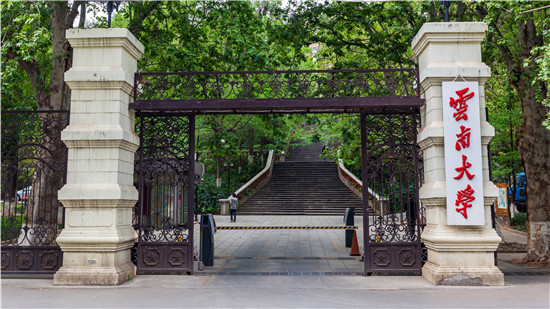
Yunnan University was founded in 1922, when it was Private Donglu University. In 1934, it was renamed as Provincial Yunnan University and in 1938 renamed as National Yunnan University. It is one of the earliest comprehensive universities in Southwest China. In 1937, when Xiong Qinglai, the well-known mathematician and educationist, served as the president, a large number of renowned scholars were employed to teach at the university, which laid foundation for its development and profound academic tradition, leading to the first glorious era in the history of Yunnan University. In 1940s, Yunnan University developed into one of the famous large universities in China with international influence and offered courses in arts, law, science, engineering, agriculture and medical science. In 1946, Yunnan University was listed by Concise Encyclopedia Britannica as one of the 15 world's famous universities in China.
In 1950s, when Yunnan University was under the direct administration of the Ministry of Education, the national faculty restructuring was introduced. Some important featured departments, like aeronautics, civil engineering, law, and railway spun off from Yunnan University and merged into colleges like Beijing Aeronautical and Astronautical Institute, Sichuan University, Southwest University of Political Science and Law and Changsha Railway Institute. Departments like engineering, medical science and agriculture were also divested from the University and gradually developed into today's Kunming University of Science and Technology, Kunming Medical University, Yunnan Agricultural University and Southwest Forestry University, etc. In 1978, it was ranked by the State Council as one of the 88 national key universities.
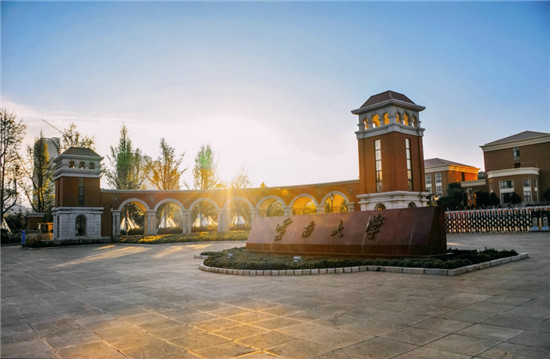
Since the reform and opening-up, Yunnan University has made huge progress. In 1996, it was among the first universities to win the membership of "Project 211". In 2001, it was listed as one of the higher education institutions to be intensively supported in China's development of its western region. In 2004, it became a key university to benefit from focused support from the People's Government of Yunnan and the Ministry of Education. In 2006, all its 19 secondary indicators were A-graded and it was rated as an excellent college for undergraduate education by the MOE. In 2012, it became a participant of the Central-western Chinese Universities Capacity-building Project, and a participant in the Central-western Chinese Universities Comprehensive Capacity Promotion Project. In 2017, it became one of the first 42 first-class universities in China. In 2018, it became one of the 14 universities in central and western China that were jointly supported by the Ministry of Education and local provincial governments. In 2022, it was selected in the second round of the first-class universities in China.

Yunnan University consists of 29 schools, eight research institutes, one affiliated hospital, one affiliated middle school, an undergraduate school, and a graduate school. There are over 3,500 teaching and research personnel in professional and technical positions, among whom nearly 1,700 have doctorates. The university has nearly 18,000 full-time undergraduate students, over 19,000 master's degree students, over 2,300 PhD students and near 1,000 international students. The University, covering an area of 300 hectares, is divided into Chenggong Campus and Donglu Campus, with a public floor area of more than 1,440,000 square meters, asset value of more than 2 billion yuan ($277.5 million) for teaching and scientific research instruments and equipment, and a collection of more than 4.45 million books in the library. The campus network is the main node of CERNET in Yunnan.
It has 85 majors in undergraduate programs, and 12 state-level featured majors. A total of 22 of its primary disciplines are authorized to offer PhDs, one promary discipline is authorized to offer professional PhDs, 41 primary disciplines offer master's degrees, and 28 disciplines offer professional master's degrees. The university has developed into a comprehensive academic institution with a full range of disciplines and a concentration of top-flight talent – with ethnology, ecology, biology, resource development and environmental protection, as well as studies on frontier issues and international issues in Southeast and South Asia, seen as constituting its distinctive competitive advantages and chief characteristics.
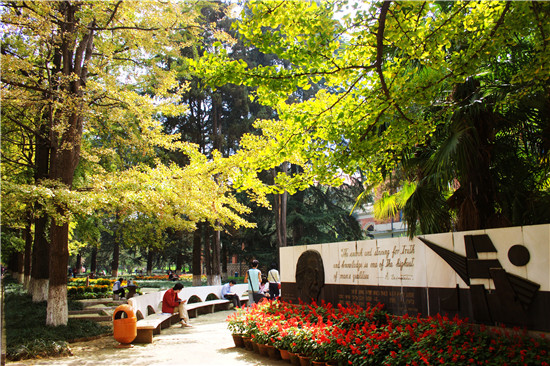
Yunnan University has 12 academicians, over 90 national high-level talents, 10 chief scientists in the National Key Basic Research and Development Program, three members on the Academic Degree Committee of the State Council and two national model teachers. Some 14 people from the university were selected to participate in the talent training cultivation programs of the Ministry of Education, while another six were named as the Publicity Department of the CPC Central Committee ideological and cultural publicity young talent.
In recent years, it has independently presided 6 projects of the 973 Plan, the 863 Plan, and 76 major bidding projects of the National Social Science Foundation and MOE humanities and social science milestone projects. Pursuit of excellence underlies all of Yunnan University's academics. Yunnan University has received numerous prestigious awards such as first prize of the National Natural Science Award, second prize of the National Natural Science Award, the National Innovation Award, the Ho Leung Ho Lee Foundation Award, the Ministry of Education's Outstanding Achievement Award in Scientific Research at Higher Education Institutions (Humanities and Social Sciences), second prize of the National Scientific and Technological Progress Award, the Whittaker Distinguished Ecologist Award and the Hodson Award for International Young Paleontologists. Additionally, the university has received three outstanding contribution awards and three special awards from the Yunnan Provincial Science and Technology Award. A total of 20 papers by its professors have been published in world's famous academic publications, like Nature and Science. It has also sponsored academic publications in arts and sciences like Yunnan University Journal and Ideological Front, one of 11 publications listed by the MOE in its Famous Publications Program.
At YNU, there is one national international joint center, two national maker spaces, and one national college students' cultural quality education base. The university has one national key laboratory that was built by the Ministry of Education and Yunnan province, and one philosophy and social science laboratory built by the Ministry of Education. In addition, there are 16 research centers, observation stations and education bases. The university has four national bases for talent cultivation, four national experiment teaching model centers, three national training programs for excellent engineers, one national educational training center for excellent practical and inter-disciplinary legal professionals, four national innovation experiment areas for talent cultivation model as well as one national pilot software school. The university boasts a large number of first-class and important scientific research facilities and platforms – such as the Laboratory Animal Center, the Advanced Computing Center, the Electron Microscope Center and the 1.6-meter multi-channel photometric sky survey telescope. Yunnan University is one of the first demonstration universities appointed by the Ministry of Education to deepen innovation and entrepreneurship education reform.
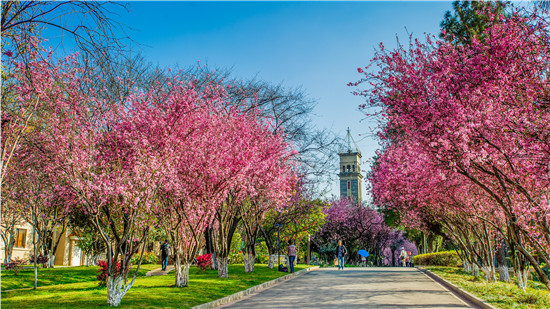
Yunnan university has taken full advantage of its unique location near South and Southeast Asia and has actively integrated into the "Belt and Road" Initiative and worked to increase Chinese influence in South and Southeast Asia. The university boasts a complete regional and national research system and a new and distinct think tank system covering Southeast Asia, South Asia, West Asia, Africa and countries involved in the "Belt and Road" Initiative. As the permanent secretary-general unit, Yunnan University initiated the "South and Southeast Asian University Network", which covers more than 120 universities in 20 South and Southeast Asian countries. Yunnan University has constructed a base for attracting students from South and Southeast Asia to study in China, as well as an innovative practice base for cultivating high-level international talent and an overseas research and internship base. It aims to establish a comprehensive system for fostering the global competencies of students and a hybrid talent development system combining language skills with specialized fields. The university is building a Chinese cultural preservation and innovation channel in Southwest China supported by Chinese language teaching centers, cultural exchange centers, teaching stations, HSK test centers – and the South and Southeast Asia International Communication Institute.
In recent years, Yunnan University has integrated itself into the national strategy by serving the economic and social development of Yunnan.
The university's report on the China-Myanmar Oil and Gas Pipeline helped the project start. Its achievements in Research on Cross-border Ecological Safety and International Rivers provided decision-making reference for solving issues related to water resources and the ecological health of rivers that flow across borders. Its research achievements in several projects, such as Dealing with Arsenic Pollution in Yangzonghai Lake, Ecological Rehabilitation and Dealing with Polluted Rivers and Investigation of Non-Point Source Pollution in Dianchi Lake and Controlling Measures have made key contributions to dealing with pollution in plateau lakes. A series of research papers on YNU's scientific achievements – including "research on paleontology and the origin of life", "research on conservation and utilization of biodiversity resources" and "perennial rice technology" – have directly served to solve major practical problems and made important contributions to the national strategy and local economic and social development.
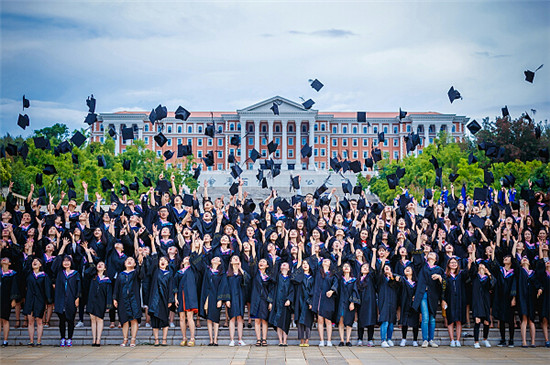
Looking into the future, Yunnan University will stick to its spirit of "wisdom from many, justice for all", highlighting rule of law, establishment by virtue, developing by relying on academic research and talents. It will continue to explore the formation of modern university system, enhance its academic strengths, improve its education quality, strengthen its research capacity and social services, promoting its cultural inheritance and innovation capability. It is now working hard to become a regional first-class university that is "best in China, and famous throughout the world".

All rights reserved. Presented by China Daily. 滇ICP备12004993号-2








